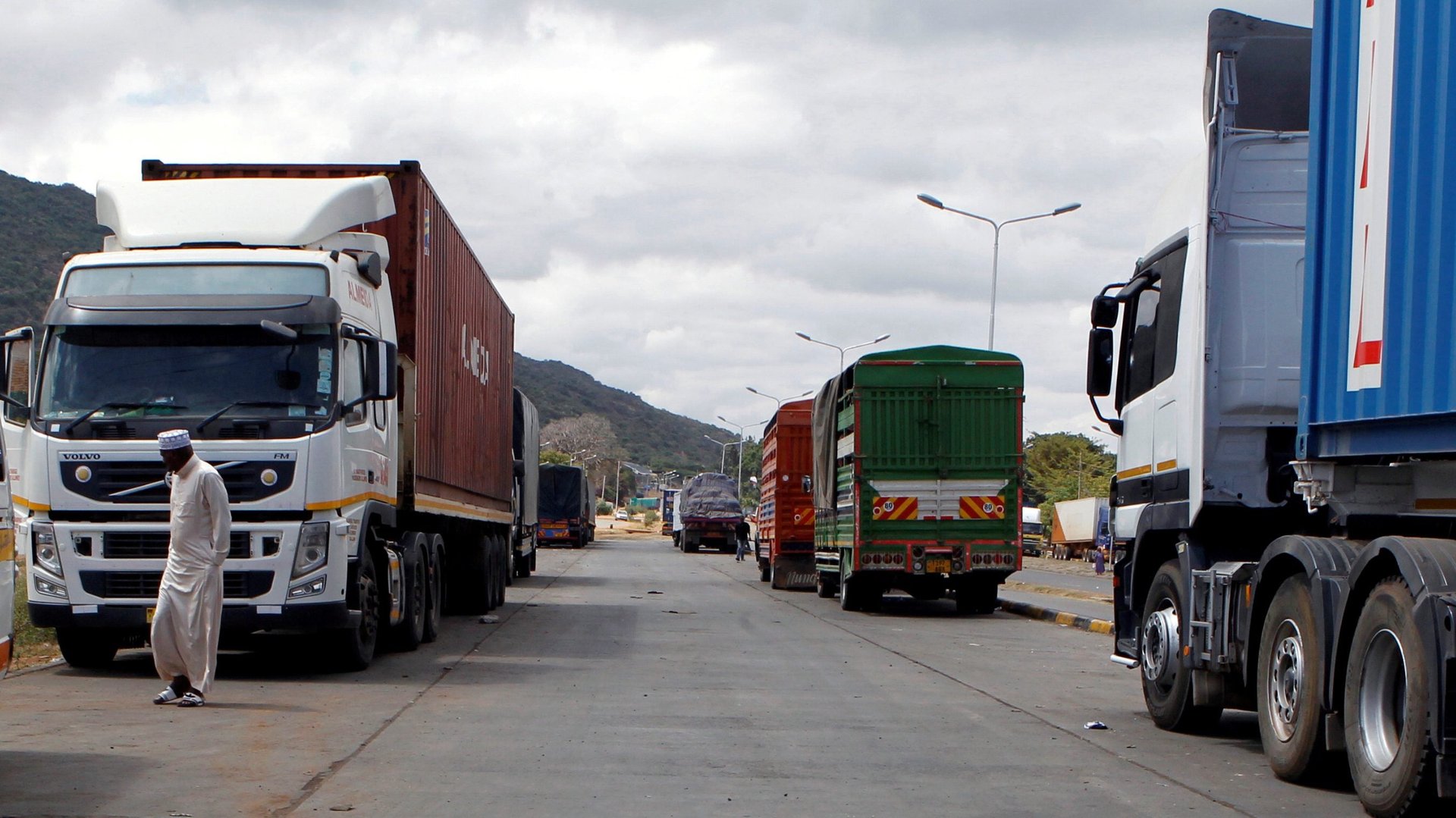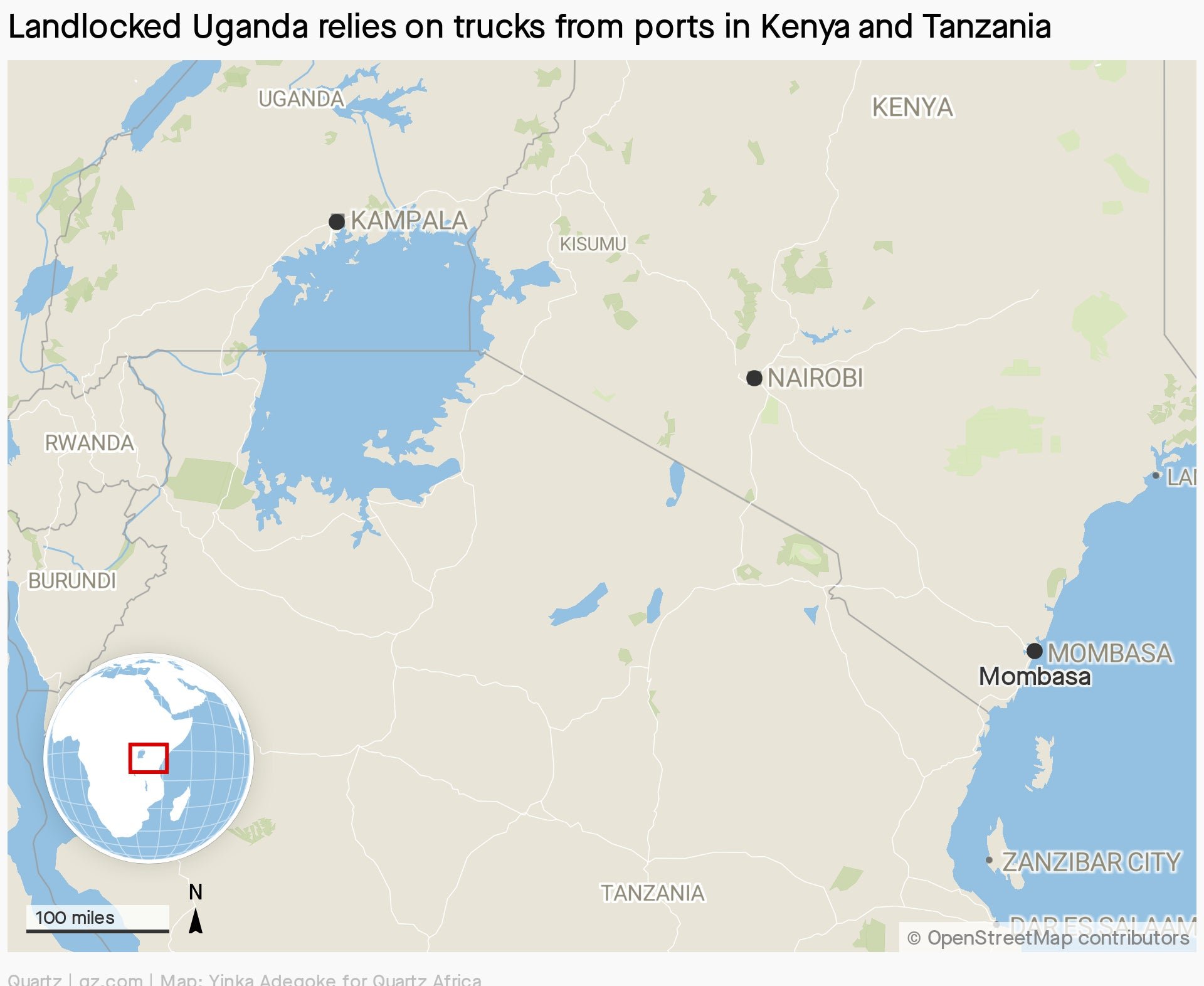East African truck drivers carrying essential goods cross-border may also be transmitting Covid-19
On April 24, Uganda’s health minister, Dr. Jane Ruth Aceng, confirmed that 12 truck drivers en route from Tanzania and Kenya had tested positive for the novel coronavirus (Covid-19), bringing the total number of cases in the landlocked country up to 75.


On April 24, Uganda’s health minister, Dr. Jane Ruth Aceng, confirmed that 12 truck drivers en route from Tanzania and Kenya had tested positive for the novel coronavirus (Covid-19), bringing the total number of cases in the landlocked country up to 75.
The news prompted widespread concern truck drivers, designated as essential workers because they transport critical goods such as food and medication across East Africa, might also be spreading the deadly virus along their routes and across borders.
In response to the potential threat, Uganda has deployed new restrictive measures, such as widespread testing, on truckers. The Ugandan minister of Interior has also ordered “relay trucking”, in which truckers stop at the border, sanitize their vehicles and pass along their goods to another driver so they do not cross international lines.
Lori, an e-logistics company with a presence across East Africa, says it’s taking precautions to protect its drivers—handing out masks, gloves and hand sanitizers. But while it acknowledges the risk truck drivers might pose in spreading Covid-19 as they transport essential goods across the region, Lori executives note excess government restrictions could be detrimental to East African economies and communities.
“We are concerned about the effect if governments impose very challenging restrictions that could impact the ability to move essential goods around the region,” said Josh Sandler, Lori’s chief executive. “It could become catastrophic if essential goods cannot get from place to place.”

Because it’s landlocked, Uganda relies on truckers to bring in essential goods from port cities in neighboring Kenya and Tanzania. Performance reports from the Kenya Ports Authority show Uganda has been the leading user importing cargo from the port of Mombasa for the past several years. Up to 12% of the country is chronically food insecure, and over 12% of Uganda’s food was imported in 2018.
Long haul truck drivers have a difficult job. They transport goods from the coastline along poorly-paved and dangerous roads in Tanzania and Kenya, up to Uganda and beyond into the Democratic Republic of Congo and other central African nations. Along the way, they often interact with corrupt police officials eager to take whatever bribes they can elicit in return for continued passage.
Uganda’s president Yoweri Museveni expressed concern that further restricting driver movements would harm Uganda’s economy. “We need the cargo. We need the goods,” said Museveni in a press conference. “But at the same time we don’t want the disease…So don’t touch the driver, and the driver should not touch you.”
Past studies conducted in Kenya found that truck drivers face a higher risk of contracting and spreading viruses like HIV/AIDS because they are a highly-mobile vulnerable group that traverses the country and often spend nights stopped in temporary locations where exposure is high and testing and protection use is low. But Kenyan doctors say it’s too soon to begin pointing the finger at truck drivers as carriers or spreaders of Covid-19, and that language like Museveni’s could lead to widespread discrimination against drivers.
“We should test them first and see the prevalence in comparison with the general population,” said Dr. Moses Masika, a Kenyan virologist at University of Nairobi’s School of Medicine. “They could be at risk but making that statement without any solid evidence can lead to stigma.”
Sign up to the Quartz Africa Weekly Brief here for news and analysis on African business, tech and innovation in your inbox